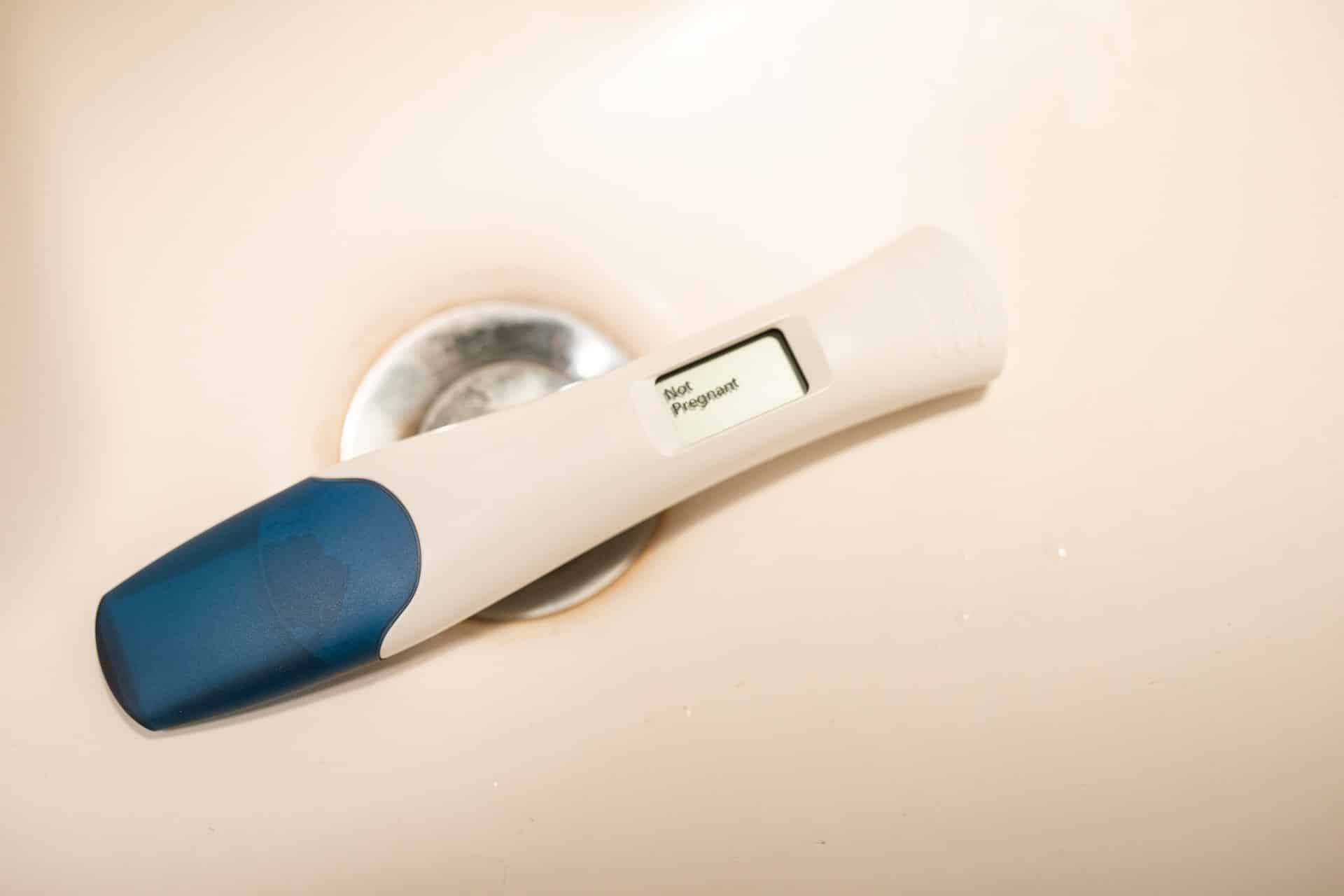Does Blue Cross Blue Shield Cover IVF? Your Guide to Understanding Fertility Benefits
Navigating the world of health insurance can feel like trying to solve a puzzle with missing pieces—especially when it comes to something as personal and complex as infertility treatments like in vitro fertilization (IVF). If you’re insured with Blue Cross Blue Shield (BCBS), you might be wondering: Does BCBS cover IVF? The short answer is—it depends. BCBS isn’t a one-size-fits-all insurer, and coverage varies based on your specific plan, state, and even your employer. But don’t worry, we’re here to break it all down for you in a way that’s easy to digest, with practical tips, fresh insights, and a few surprises along the way.
Let’s dive into what you need to know about BCBS and IVF coverage, from the basics to the nitty-gritty details that could save you time, money, and stress.

What Is IVF, and Why Does Insurance Matter?
IVF is a fertility treatment where eggs are retrieved from the ovaries, fertilized with sperm in a lab, and then transferred into the uterus. It’s a game-changer for many struggling to conceive, but it’s also expensive—often costing $12,000 to $20,000 per cycle, not including medications or extra procedures. For most people, footing that bill out of pocket isn’t realistic, which is why insurance coverage can make or break the decision to pursue IVF.
BCBS is one of the biggest health insurance providers in the U.S., covering millions through individual plans, employer-sponsored plans, and federal programs. Because it operates as a network of independent companies (like BCBS of Texas or CareFirst BCBS), coverage isn’t uniform. That’s the first thing to wrap your head around: your BCBS plan might cover IVF, but your neighbor’s might not. So, how do you figure out where you stand? Let’s start with the basics.

The Big Picture: Does BCBS Cover IVF?
BCBS can cover IVF, but it’s not guaranteed. Whether you’re covered depends on three main factors:
- Your Specific Plan: Some plans include fertility benefits; others don’t. Employer-sponsored plans, for example, might offer more generous coverage than individual marketplace plans.
- Your State: Some states, like Illinois and Massachusetts, have laws mandating infertility coverage, which forces insurers like BCBS to include IVF in certain plans. Other states? Not so much.
- Plan Details: Even if IVF is covered, there might be limits—like a cap on the number of cycles or specific requirements you need to meet first.
Here’s a quick reality check: according to a 2023 survey by the Kaiser Family Foundation, only about 25% of large employers offer some form of IVF coverage in their health plans. Since BCBS often tailors its offerings to employers, your odds hinge on whether your workplace opted in. If you’re on a federal BCBS plan (like the Federal Employee Program, or FEP), there’s good news—IVF benefits have been expanding, especially in 2024 and 2025.
So, step one? Grab your insurance card, find the customer service number, and call. Ask: “Does my plan cover IVF, and what are the details?” You’ll want specifics—like how many cycles, what procedures, and any out-of-pocket costs. But before you dial, let’s explore what’s typically covered (and what’s not).
What’s Usually Covered Under BCBS IVF Benefits?
When BCBS does cover IVF, it’s not just a free-for-all. Plans often include a mix of services, with some strings attached. Here’s what you might find:
Common Covered Services
- Diagnostic Testing: Before IVF, you’ll need tests to confirm infertility (e.g., blood work, semen analysis, or ultrasounds). Most BCBS plans cover these.
- Ovulation Stimulation: Medications to boost egg production—like Clomid or injectables—might be included, though you may need to use a specific pharmacy.
- Egg Retrieval and Embryo Transfer: The core IVF steps are often partially covered if your plan includes fertility treatments.
- Lab Fees: Costs for fertilizing eggs and growing embryos in the lab might be in the mix.
What’s Often Excluded
- Preimplantation Genetic Testing (PGT): Checking embryos for genetic issues? That’s usually an add-on you’ll pay for yourself.
- Cryopreservation: Freezing eggs, sperm, or embryos isn’t always covered beyond a short period (e.g., one year for federal plans).
- Donor Eggs or Sperm: If you need donor material, many plans won’t foot the bill.
A Real-Life Example
Take Sarah, a 34-year-old teacher in North Carolina with BCBS through her school district. Her plan covered three IVF cycles up to $25,000 annually—but only after she met a $1,500 deductible. Medications were partially covered, but freezing embryos cost her an extra $1,000 out of pocket. Compare that to Mike, a federal employee in Virginia with BCBS FEP Standard Option. His 2025 plan covers IVF at 50% after a deductible, with a $45,000 yearly cap. Same insurer, totally different experiences.
The takeaway? Coverage is a patchwork quilt. You’ve got to check your “Benefit Booklet” (that thick packet you got when you signed up) or log into your BCBS online portal to see what’s what.
State Laws: The Game-Changer You Might Not Know About
Here’s something not everyone talks about: where you live can tip the scales. As of March 31, 2025, 21 states have infertility insurance mandates, and they vary wildly. These laws force insurers like BCBS to offer some level of fertility coverage in certain plans. Let’s break it down:
States with Strong IVF Mandates
- Massachusetts: Insurers must cover unlimited IVF cycles if medically necessary. BCBS of Massachusetts often reflects this in its plans.
- Illinois: Requires coverage for up to four egg retrievals per year. BCBS of Illinois has faced lawsuits (more on that later) to ensure compliance.
- New York: Covers three IVF cycles for large group plans—good news if your employer has 100+ workers.
States with No Mandates
- Florida, Texas, Arizona: No state law means BCBS coverage depends entirely on your plan. You’re at the mercy of your employer or insurer’s generosity.
A Hidden Perk
Even in non-mandate states, some BCBS plans offer “Blue Distinction Centers” for fertility care—top-notch clinics with potentially better coverage deals. Check if your local fertility center is on that list; it could mean lower costs.
Curious about your state? The American Society for Reproductive Medicine (ASRM) has a handy map of infertility laws—worth a quick Google to see where you stand.
Federal Employees: A Bright Spot for IVF Coverage
If you’re a federal worker, retiree, or family member under the BCBS Federal Employee Program (FEP), you’re in luck. FEP has been beefing up fertility benefits, and 2025 is no exception. Here’s the scoop:
- Standard Option: As of 2025, you get up to three IVF attempts per live birth, with a $45,000 annual cap at 50% coverage after your deductible. That’s a big jump from previous years.
- Basic Option: Covers artificial insemination (like IUI) but not full IVF—yet there’s talk of expansion in 2026.
- Extras: One year of egg or sperm storage if you’re facing “iatrogenic infertility” (caused by medical treatments like chemo).
Real talk: this is huge for the 5.6 million people under FEP. A federal employee named Lisa shared on a fertility forum that her 2024 IVF cycle cost her just $3,000 out of pocket thanks to FEP updates—way less than the $15,000 she’d budgeted.
Interactive Quiz: Is Your BCBS Plan IVF-Friendly?
Let’s make this fun. Answer these quick questions to gauge your coverage odds:
- Do you live in a state with an infertility mandate? (Yes/No)
- Is your BCBS plan through an employer with 50+ employees? (Yes/No)
- Have you checked your Benefit Booklet for “infertility services”? (Yes/No)
- Are you a federal employee with FEP? (Yes/No)
Results:
- 3-4 Yeses: You’ve got a solid shot at IVF coverage—call BCBS to confirm!
- 1-2 Yeses: It’s a coin toss; dig into your plan details.
- 0 Yeses: Coverage is less likely, but don’t give up—keep reading for options.
The Fine Print: What BCBS Doesn’t Tell You Upfront
Even if IVF is covered, there are hurdles. Here are three things that trip people up—and how to dodge them:
1. Pre-Authorization Drama
Most BCBS plans require “prior approval” for IVF. That means your doctor has to submit paperwork proving it’s medically necessary. If they mess up the codes or miss a step, you’re denied. Tip: Ask your clinic’s billing team to double-check everything before submission.
2. The Infertility Definition Trap
BCBS often defines infertility as “12 months of unprotected sex without conception” (or 6 months if you’re over 35). If you’re single or in a same-sex couple, this can exclude you—unless your state law says otherwise. In 2023, a lawsuit against BCBS of Illinois claimed this rule discriminates against LGBTQ+ folks, and the case is still unfolding as of March 2025.
3. Lifetime Limits
Some plans cap IVF at a set number of cycles (e.g., 2 or 4) or a dollar amount (e.g., $30,000 lifetime). Once you hit that, you’re on your own. Tip: Space out cycles if possible, and ask about “rollover” benefits into the next year.
Three Under-the-Radar Factors That Affect Coverage
While most articles stick to plan details and state laws, there’s more to the story. These lesser-known factors could sway your IVF journey with BCBS:
1. Employer Negotiation Power
Big companies can customize BCBS plans. If your HR team pushed for fertility benefits, you might have coverage even in a non-mandate state. A 2024 Mercer report found that 40% of employers with 500+ workers now offer IVF—up from 28% in 2020. Chat with HR to see if they’ve got your back.
2. Pharmacy Loopholes
IVF meds (like progesterone or gonadotropins) can cost $3,000-$5,000 per cycle. Some BCBS plans only cover them through specialty pharmacies like CVS Caremark. If your local pharmacy isn’t in-network, you’re stuck paying full price. Tip: Call BCBS to confirm your pharmacy options before filling scripts.
3. Emerging Legal Battles
That Illinois lawsuit? It’s part of a wave. In 2024, advocacy groups pushed the Equal Employment Opportunity Commission (EEOC) to investigate insurers like BCBS for denying IVF to non-heterosexual couples. If rulings go in favor of broader access, coverage could expand by 2026—something to watch.
How to Maximize Your BCBS IVF Benefits
Found out you’ve got coverage? Awesome. Here’s how to make the most of it:
Step-by-Step Guide
- Confirm Coverage: Call BCBS and request a written summary of your infertility benefits.
- Pick a Clinic: Choose an in-network provider—preferably a Blue Distinction Center—to keep costs down.
- Get Pre-Approved: Work with your doctor to submit all required docs early.
- Track Costs: Log every bill and reimbursement; errors happen.
- Appeal Denials: If BCBS says no, file an appeal with your doctor’s help—60% of appeals succeed, per a 2023 Resolve study.
Money-Saving Hacks
- ✔️ Use GoodRx for meds not covered by BCBS—discounts can slash costs by 30%.
- ✔️ Ask your clinic about payment plans or IVF “bundles” for multiple cycles.
- ❌ Don’t assume everything’s covered—double-check extras like embryo storage.

What If BCBS Doesn’t Cover IVF?
No coverage? You’re not out of options. Here’s how to keep your dream alive:
Alternative Funding
- Grants: Organizations like BabyQuest offer up to $15,000 for IVF—apply early, as spots fill fast.
- Loans: Fertility-specific lenders like CapexMD have lower rates than credit cards.
- Crowdfunding: Platforms like GoFundMe have helped thousands raise IVF funds.
Creative Workarounds
- Switch Jobs: Some companies (like Starbucks or Amazon) offer IVF benefits even for part-time workers.
- Travel Abroad: IVF in countries like Mexico or Spain costs $5,000-$8,000 per cycle—half the U.S. price.
A Success Story
Meet Jen, a 38-year-old from Florida with no BCBS IVF coverage. She applied for a grant, got $10,000, and paired it with a clinic discount for a total cost of $14,000. Her twins were born in 2024—proof that no coverage doesn’t mean no hope.
Poll: What’s Your Biggest IVF Worry?
We want to hear from you! Pick your top concern:
- A) Cost of treatment
- B) Insurance confusion
- C) Finding the right clinic
- D) Emotional stress
Drop your answer in the comments—we’ll tally the votes and share tips based on your feedback!
The Future of BCBS and IVF: What’s Coming in 2025 and Beyond
IVF coverage is evolving fast. Here’s what’s on the horizon:
Trends to Watch
- Federal Push: The 2024 Access to Family Building Act, if passed, could mandate IVF coverage nationwide—BCBS included.
- Employer Demand: With 1 in 5 couples facing infertility (per the CDC), more companies are adding IVF to attract talent.
- Tech Advances: New IVF techniques (like AI-driven embryo selection) might lower costs, nudging BCBS to cover more.
My Prediction
By 2027, I bet half of BCBS plans will offer at least partial IVF coverage, driven by legal pressure and public demand. For now, though, it’s a mixed bag—so arm yourself with knowledge.
Bonus: Your IVF Coverage Checklist
Before you go, here’s a handy list to keep you on track:
✔️ Call BCBS to confirm IVF coverage details.
✔️ Check your state’s infertility laws.
✔️ Ask your employer about added benefits.
✔️ Find an in-network fertility clinic.
✔️ Explore grants or loans if needed.
❌ Don’t start treatment without pre-approval.
❌ Don’t skip the fine print in your plan.

Wrapping It Up: Your Path to Parenthood with BCBS
So, does Blue Cross Blue Shield cover IVF? Maybe—maybe not. It’s a maze, but it’s one you can navigate with the right tools. Whether you’re digging into your plan, fighting for an appeal, or hunting for outside help, you’ve got options. And here’s the truth no one else will tell you: the system’s messy, but persistence pays off. Every cycle, every call, every question brings you closer to your goal.
Got a story about your BCBS IVF journey? Share it below—I’d love to hear how you’re making it work. Let’s keep this conversation going, because no one should feel alone on this road.


